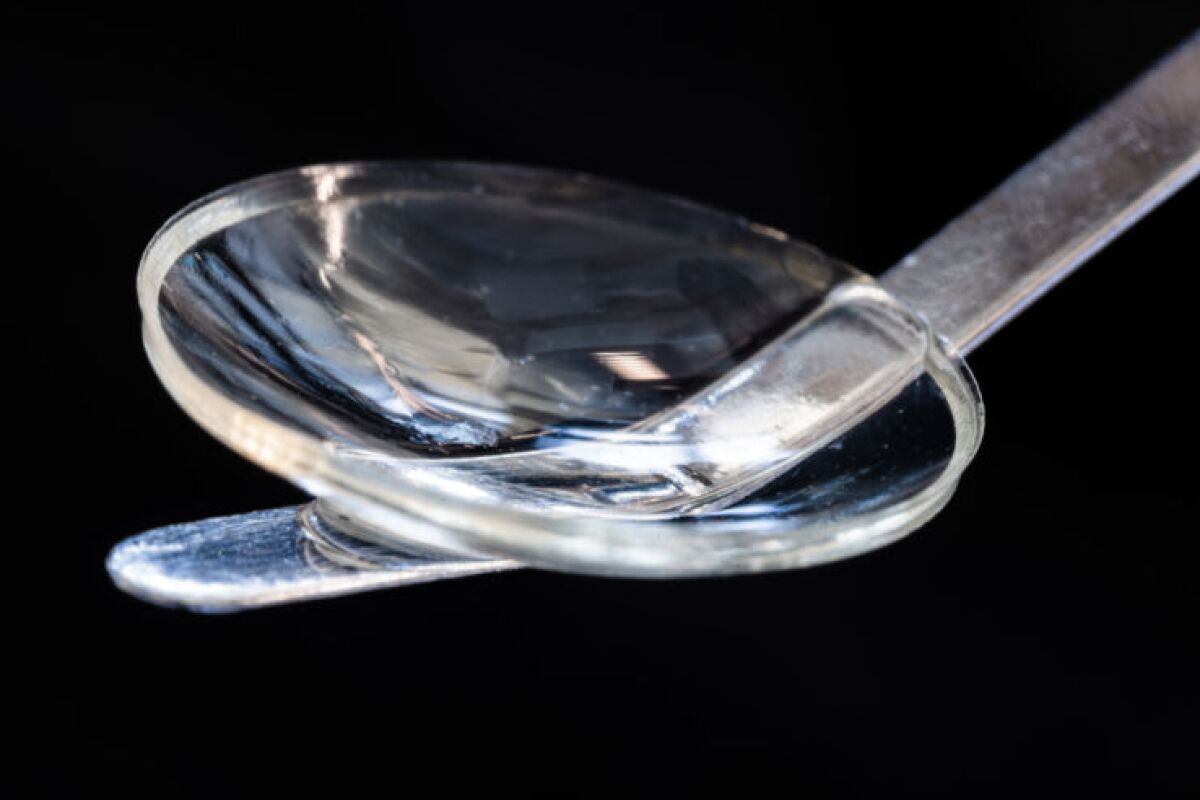A cornea implant made out of collagen gathered from pig skin has restored the vision of 20 volunteers in a landmark pilot study. Pending further testing, the novel bioengineered implant is hoped to improve the vision of millions around the world awaiting difficult and costly cornea transplant surgeries.
More than one million people worldwide are diagnosed blind every year due to damaged or diseased corneas. A person’s vision can be easily disrupted when this thin outer layer of tissue surrounding the eye degenerates.
A person suffering corneal blindness can have their vision restored by receiving a corneal transplant from a human donor. However, a lack of cornea donors means barely one in 70 people with corneal blindness will ever be able to access a transplant. Plus, the surgical procedure can be complex, amplifying the lack of access to this vision-restoring procedure for people in low- and middle-income countries.
This new research first looked to develop cornea implants that didn’t rely on human donor tissue. Over a decade ago the researchers first demonstrated biosynthetic corneas were effective replacements for donor corneas. But those earlier studies still relied on complex lab-grown human collagen, molded into the shape of corneas.
This new study demonstrates the same biosynthetic cornea can be effectively produced using medical-grade collagen sourced from pig skin. Not only is this a cheap and sustainable source of collagen, but improved engineering techniques mean these bioengineered corneas can be safely stored for almost two years, unlike donated human corneas which must be used within two weeks of harvesting.
“The results show that it is possible to develop a biomaterial that meets all the criteria for being used as human implants, which can be mass-produced and stored up to two years and thereby reach even more people with vision problems,” explained Neil Lagali, one of the researchers working on the project. “This gets us around the problem of shortage of donated corneal tissue and access to other treatments for eye diseases.”
The other innovation demonstrated in the study is a new surgical approach for implanting the bioengineered cornea. Instead of needing to surgically remove a patient’s pre-existing cornea, as would be done when transplanting a donor cornea, the new method leaves that tissue intact. Only a small suture is necessary to insert the novel implant.
“A less invasive method could be used in more hospitals, thereby helping more people,” said Kigali. “With our method, the surgeon doesn’t need to remove the patient’s own tissue. Instead, a small incision is made, through which the implant is inserted into the existing cornea.”
The new study, published in Nature Biotechnology, describes the results of a pilot trial that tested the implant in 20 volunteers, 14 of whom were completely blind before the experimental procedure. At the two-year follow-up the study reports all 20 volunteers had completely regained their vision and experienced no adverse effects from the surgery.
The tissue was also seen to heal incredibly fast, with only eight-weeks of immunosuppressive eye drops needed to prevent rejection. Current cornea transplants using human tissue often require several years of immunosuppressive medications to prevent tissue rejection.
Although incredibly promising, it is crucial to stress these results are only from a preliminary pilot study. A larger, more robust clinical trial will be necessary before this innovative implant gets out into the world. Nevertheless, Lagali is hopeful that this work will ultimately lead to a cheap and easy way to repair corneal damage in millions of people around the world.
“We’ve made significant efforts to ensure that our invention will be widely available and affordable by all and not just by the wealthy,” he added. “That’s why this technology can be used in all parts of the world.”
The new study was published in the journal Nature Biotechnology.
Source: Linköping University




